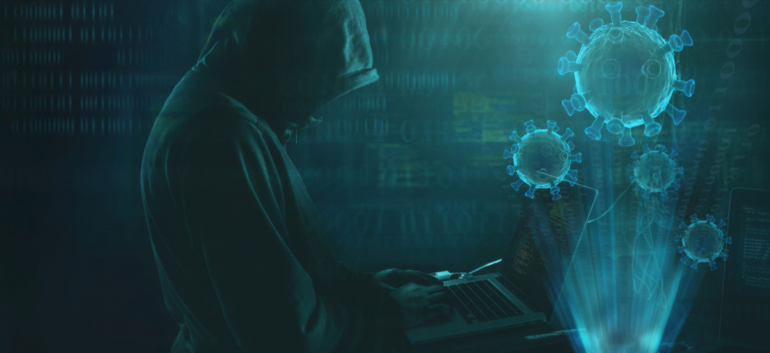Ransomware Attacks: Hospitals & COVID-19
Hospital workers have enough to worry about with coronavirus patients and others in need of emergency medical assistance. Unfortunately, ransomware hackers have hospitals in their crosshairs. Ransomware infiltrates computers and networks, freezing them until a ransom is paid, typically in the form of Bitcoin or another cryptocurrency. Sadly, these malicious cyber miscreants are zeroing in on hospitals and other healthcare providers amidst the coronavirus pandemic.
Every Hospital Worker Should be Aware of the Ransomware Threat
The FBI and Department of Homeland Security have issued a warning that Chinese hackers, as well as other cyber thieves, are breaking into the networks and computers of hospitals and healthcare organizations. International authorities indicate such ransomware attacks are on the rise in light of COVID-19.
Ransomware is used to lock networks, holding essential information hostage until the hospital pays the ransom in full. Once the ransom is paid, control of the network is returned to the hospital administrators. However, there is no guarantee the hackers will relinquish control over the network. This is precisely why every hospital and healthcare organization should have the proper digital protections in place to combat ransomware.
Ransomware Attack Methods
Ransomware enters networks and computers through several different methods. One such method is to trick a hospital employee to click on a malicious link that plants the ransomware onto that user’s computer, freezes the network and makes it impossible to work until the ransom is paid.
Additional ransomware attack methods include fake emails in which the head of a business is impersonated in order to convince hospital employees to click the message as well as its internal links and/or download seemingly legitimate attachments. Furthermore, hackers also have complex tools to enter computers and networks by hacking into weak points and wreaking havoc. Once inside the network, hackers can lock the data, preventing hospital staffers from accessing internal information until the ransom is paid.
Hospitals Often Lack Protective Software
Part of the reason why hackers are targeting hospitals is these organizations are typically less digitally secure than other businesses. The focus of hospital staff members is primarily on serving patients in desperate need of care rather than safeguarding data. Hospitals across the United States and beyond are stretched to capacity as the coronavirus infects the masses. Many hospitals and other healthcare organizations lack the latest versions of protective software that guards against ransomware attacks as well as other digital infiltrations.
Ransomware hackers are also targeting hospitals as these organizations are inclined to pay the ransom right away to regain control of their systems and provide needy patients with timely service. As an example, a company that provides web development services would be more inclined to have the proper digital protections in place and search for ways to avoid paying the ransom. Alternatively, a hospital that cannot access its internal data due to a ransomware attack is likely to pay the ransom simply because regaining control to patient data has the potential to make the difference between life and death.
Healthcare workers and organizations should not assume cyber thieves will cut them slack during these challenging times. Rather, expect the opposite– healthcare providers have a digital bullseye of sorts as they are inclined to pay ransoms in order to serve those in need during this unfortunate public health crisis.
Uniti Fiber is at Your Service
Our tech team is here to help your organization combat ransomware as well as other digital threats. We provide digital surveillance, digital security solutions, managed hosted services, and infrastructure solutions tailored to each client’s unique business.
Reach out to us today to find out more about how we can help your business. If you prefer to contact us online, simply fill out our online contact form and we will be in touch.




